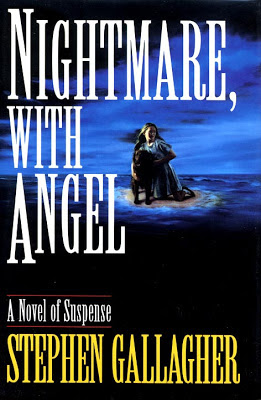But in the most ambitious part of the trip, I headed East. Right across Germany, through the border, and into territory that had, only months before - weeks, even - been sealed off, self-contained, an enigma to the West.
For someone raised on spy fiction, this was no small deal. In Cold War mythology, East Germany was enemy territory. In reality the border was a zone of tension, and people died trying to cross it.
What I found was empty checkpoints, broken barriers, watchtowers with their windows stoned-in... there were concrete blocks that had been placed to prevent any vehicle from making a dash through, forcing the car into a zigzag path that no longer served any purpose. This once-fearsome locale now felt like a corner of an abandoned airfield, already becoming overgrown.
And what I found on the other side resembled the Britain of my earliest memories. It was as if time had stopped in the 1950s, which I suppose it pretty much had. Fields, farms, and villages were untouched. Where there was industry, it was like a concentrated dump of poison in an otherwise bucolic landscape. My most powerful visual memory is of the bright yellow hillsides of oilseed rape, unnatural in their intensity, a sight that always takes me back not only to the place, but to that precise time of the year.
I don't know what they must have made of the Volvo. At least half of the cars I saw on the road were Trabants, those tiny two-stroke polluters with bodyshells made of cotton waste and resin. The Volvo was a red 480 ES, one of those sports coupés with which they sometimes surprise the market, pictured here as it appeared in Bryan Talbot's The Tale of One Bad Rat. Driving around in it made me feel like Commander Straker in UFO.
I covered my checklist of sights and places, I gathered atmosphere and detail. It was all for a novel called Nightmare, with Angel.
I stayed in some odd places; one night in an inn where they kindly but apologetically gave me a tiny stockroom behind the bar with a bed in it, another in a workers' subsidised country vacation home, vast as the Overlook Hotel and just as empty. Along the way I found everything that I needed for the novel, and much that I'd never imagined. It didn't all find its way in, but it all made a difference. That's research for you.
I look back at some of the stuff I've done in the course of my career and wonder how I had the nerve. I had no one to guide me, I'd made no advance reservations. I didn't even speak any German. I did have a map and a phrasebook. I wasn't a complete idiot.
Here's how I began my pitch for the novel:
Imagine this.So the story that swept all the way to the East began closer to home, on a part of the British seacoast that I knew quite well. Sunderland Point is one of those places that can only be reached by a causeway at low tide. Strange, desolate and charming, it's one of the most atmospheric places I know. At the time I was experimenting with one of those panoramic cameras that took a picture like a school photo. It was a format that somehow suited the landscape.
You've got a nine year old girl who lives alone with her father in a big old house by the sea. Every day she looks more like her mother, and her mother was a tramp. Because of this her father all but ignores her, the woman who keeps house in the daytime also keeps her distance, and the child has to face a solitary life with only a scavenged photograph of her mother for comfort and a wishful image of what it might be like to be loved again. Her father isn't a hard man; but he's a mess, he's losing his grip, and he doesn't seem to see how he's losing his daughter as well. When he notices her, he's impossibly strict. But most of the time he's absorbed by his own bitterness, and he hardly notices her at all. Her days are long, and as bleak and empty as the coastal landscape around the house where she roams. With her father seemingly lost to her, she needs a father‑figure to take his place; and on the day that she falls into one of the big sea‑drains by the town dump and has to be rescued by a stranger, she thinks that she's found one.
His name is Ryan. He lives in a rented shack by the railway line and makes a living however he can; odd jobs, casual work, fixing up abandoned appliances, cleaning out aluminium cans and bagging them for scrap. He gets her out, he takes her home and, without waiting for thanks, he walks away.
But it isn't going to be so easy for him.
The novel did rather well for me, and one way or another it'll be available again soon. Don't ask me which way, because that isn't settled yet.
A couple of years later I traded in the Volvo for a sensible family wagon. Lots of legroom for the rear seats, plenty of luggage space, and room for the dogs.
This year, I traded back.









































